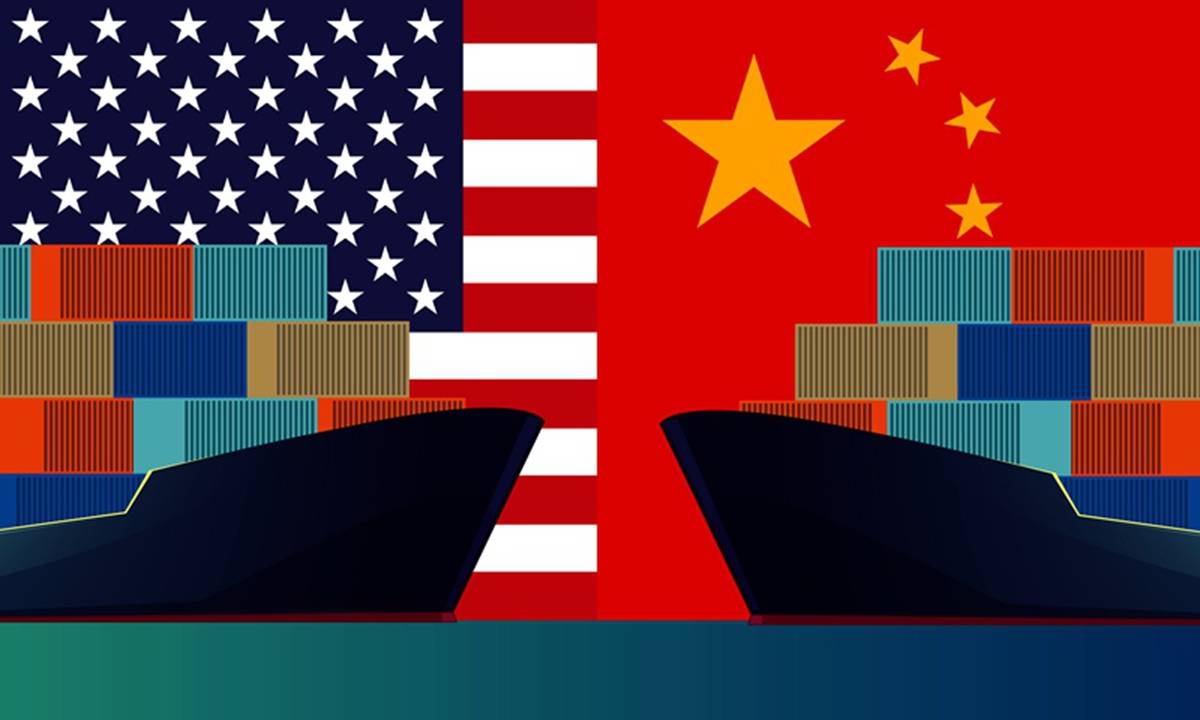Despite the growing risk of a recession in the US, Walmart continues to stand tall. With Walmart's Tuesday close at $124.25 per share, Wall Street analysts still remained bullish on the stock's prospects over the longer term. What is supporting the world's largest retailer's shares?
Walmart's annual sales revenue for fiscal year 2022 ending January 31 this year hit near $573 billion, which was impressive for a retailer undergoing the worst of the global pandemic. The company recently raised its outlook for sales this year, saying it expects net sales to increase about 4 percent for fiscal year 2023, according to media reports.
When American consumers spend, what they buy is mostly made in China. Walmart's steady growth has had everything to do with the support of Chinese manufacturing. A lot of news story often mention that estimates suggest Chinese suppliers make up 70 to 80 percent of Walmart's merchandise in the US, according to the Alliance for American Manufacturing.
To a certain extent, Walmart's development is a microcosm of the inextricable nature of the China-US trade. The inflows of China's inexpensive and high-quality products have actually reduced the cost of living for American households, while US retailers have benefited a lot from bilateral trade by profiting from the sales of Chinese products in the US.
It is because the economies of China and the US have become inseparable, the US imposition of tariffs on more than $300 billion worth of Chinese goods failed to achieve the decoupling purpose as expected. The past two years saw both the China-US trade value and their trade surplus maintain an upward trend despite the impact of the global pandemic and geopolitical volatility. Moreover, there is growing awareness that higher tariffs have hurt US businesses and consumers, who bear the most of the additional costs.
Globally, US retailers cannot find a comprehensive alternative to Chinese-made suppliers. Now with the US economy becoming more fragile amid soaring inflation, such unnecessary costs have become particularly unbearable. The US economy is facing its most serious inflation challenge in four decades, which has already forced the Federal Reserve to be unusually aggressive with interest rate hikes. And there are worries that the US may slip into a recession next year. In other words, the US has the pressing need to tame inflation to help alleviate its domestic economic woes, and tariff cuts are apparently the most direct and feasible means of curbing inflation.
US leaders, including President Joe Biden and US Treasury Secretary Janet Yellen, have all spoken out on considering lowering tariffs on Chinese goods in recent months, but there has been no real move yet. Politico reported on Tuesday that Biden could be close to lifting tariffs on just $10 billion worth of Chinese goods while opening a new exclusion process for firms to win additional relief. If the news is real, it is a clear indication of the Biden administration's reluctance to give up the China tariffs as "leverage."
Compared with the more than $300 billion worth of Chinese imports affected by the tariffs, the reported figure is so small that even Walmart's sales of Chinese merchandise alone may already far exceed $10 billion. Only by liberalizing imports from China on a large scale, showing some courage and wisdom in relaxing the high-tech export to China, and making full use of the complementary aspect of the China-US trade, may the China-US trade really play a positive role to push the US economy back to the right track again.
Time is not on Washington's side. The longer it drags on, the more damage it will do to the economy, and the more voters will change their vote.




No comments yet
Be the first to share your thoughts!